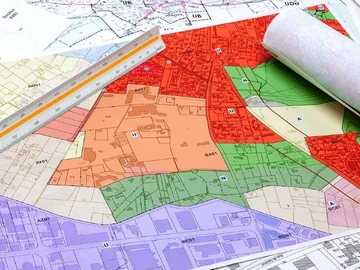Buying land is a significant investment, but in Zimbabwe and many other countries, it can also be a legal and emotional minefield. From double allocations to unclear boundaries, land disputes remain one of the most common and costly challenges for property buyers, developers, and even traditional landholders.
Common Causes of Land Disputes
Understanding the root causes of land conflicts is the first step toward prevention. The most frequent culprits include:
1. Multiple Allocations or Sales
A single parcel of land is sometimes sold to more than one buyer often due to fraudulent activity, collusion, or poor recordkeeping. In Zimbabwe, this is common in peri-urban areas where land is sold under traditional or cooperative ownership structures without proper registration.
2. Unclear or Fake Title Deeds
Fake or forged title deeds are a serious issue, especially in high-demand urban areas like Harare, Chitungwiza, and Ruwa. In 2022 alone, the Ministry of Justice reported over 400 cases of fraudulent land transactions involving counterfeit paperwork.
3. Boundary Disputes
Many disputes arise when the boundaries of a property are not clearly demarcated or surveyed, leading to overlaps or encroachments. This is especially problematic in rural or communal lands.
4. Inheritance and Succession Issues
When land is passed down without formal documentation or estate planning, it often results in family feuds and competing claims.
5. Occupation by Third Parties
In some cases, land may already be occupied by squatters or tenants who refuse to vacate, or who claim rights through long-term use.
Real-World Example
A widely publicized case in 2023 involved a housing cooperative in Harare South that sold the same stands to different buyers. The case resulted in dozens of families being evicted despite having receipts and allocation letters, underscoring the dangers of buying land without proper vetting.
How to Avoid Land Disputes
To safeguard your investment, take these proactive steps:
1. Conduct a Thorough Title Deed Check
- Visit the Deeds Registry or use a certified conveyancer to verify ownership.
- Ensure the title deed is genuine, current, and free of caveats, mortgages, or disputes.
- For state land, check with the Ministry of Local Government or Ministry of Lands.
2. Survey the Land
Always engage a registered land surveyor to confirm the size, boundaries, and exact coordinates. This step is crucial for new developments and subdivisions.
3. Use a Registered Estate Agent or Conveyancer
Professionals registered with the Estate Agents Council of Zimbabwe (EACZ) or Law Society of Zimbabwe (LSZ) follow due diligence protocols that minimize risk.
4. Request a Land History Report
Ask about the land’s ownership history, previous transactions, and any legal matters involving the property. You can request this from the Deeds Office or relevant council office.
5. Avoid Verbal Agreements
Never rely on informal or verbal promises. Every transaction must be documented through a written agreement of sale and witnessed legally.
6. Beware of “Too Good to Be True” Deals
If the price is far below market value, it’s often a red flag. Scammers target desperate or uninformed buyers.
7. Confirm Zoning and Land Use
Ensure the land is zoned for your intended use (residential, agricultural, commercial) by checking with the local municipal planning office.
8. Do a Site Visit and Talk to Neighbours
Visit the land and engage locals. They often know of disputes or multiple claimants that won’t appear on paper.
Legal Remedies if You're Involved in a Dispute
If you find yourself in a land dispute:
- File a report with the police if fraud is suspected.
- Seek urgent legal advice to place a caveat on the title.
- Approach the High Court or Administrative Court depending on the type of dispute.
- In rural or traditional areas, disputes may need to go through local chiefs or village heads, then escalate to civil courts if unresolved.
Final Thoughts
Land ownership should be empowering, not distressing. While Zimbabwe has made strides toward improving land governance, buyers must remain vigilant. By following proper legal channels, using professional assistance, and avoiding shortcuts, you can protect yourself from the devastating financial and emotional costs of land disputes.
 Continue with Facebook
Continue with Facebook
 Continue with Email
Continue with Email














